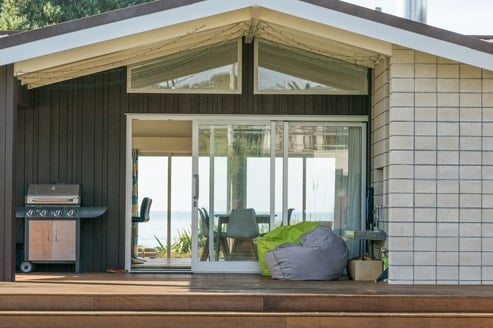In recent years, Costa Rica has emerged as a popular destination for those looking to invest in real estate abroad. Its stunning natural beauty, stable economy, and welcoming culture make it an attractive option for individuals seeking a second home, retirement destination, or income-generating property. If you’re considering purchasing real estate in Costa Rica, it’s essential to understand the ins and outs of the process to make a well-informed decision. In this blog post, we’ll explore the key aspects of buying real estate in Costa Rica.
Why Invest in Costa Rica Real Estate?
Costa Rica’s real estate market offers a range of opportunities for investors. Whether you’re interested in purchasing a beachfront property, a mountain retreat, or a bustling urban apartment, Costa Rica has something for everyone. Here are some reasons why investing in Costa Rica real estate may be a smart move:
- Stable Economy: Costa Rica boasts a stable economy with a strong democratic government, making it a safe place to invest in real estate.Costa Rica’s stable economy is a fundamental factor that attracts investors to its real estate market. The country has a strong democratic government and a history of political stability, providing a favorable environment for long-term investments. This stability instills confidence in investors, assuring them of the security of their assets and the reliability of the market.
- Natural Beauty: Costa Rica’s breathtaking natural landscapes, ranging from pristine beaches to lush rainforests, are a major draw for tourists and expats alike. The country’s unparalleled natural beauty not only enhances the quality of life for residents but also drives demand for rental properties. Investors can capitalize on this demand by owning properties in popular tourist destinations, generating steady rental income and potential capital appreciation.
- Favorable Climate: Costa Rica’s warm tropical climate throughout the year makes it an attractive destination for individuals seeking a sun-soaked escape from colder regions. The pleasant weather conditions contribute to the country’s appeal as a sought-after vacation spot and retirement destination. Properties in Costa Rica’s coastal areas and highlands benefit from the year-round pleasant climate, making them desirable investments for both personal use and rental purposes.
Did you know that Costa Rica has 6 microclimates? Read our previous blog about Exploring Costa Rica’s Diverse Microclimates and Sunny Guanacaste Weather
- Tax Benefits: The Costa Rican government incentivizes foreign investors by offering tax benefits for real estate investments. These tax incentives can include exemptions, deductions, or reduced tax rates on rental income, capital gains, property transactions, or related expenses. By taking advantage of these tax benefits, investors can optimize their returns and minimize their tax liabilities, enhancing the overall profitability of their real estate investments in Costa Rica.
Legal Aspects of Buying Real Estate in Costa Rica
Before purchasing real estate in Costa Rica, it’s crucial to understand the legal aspects of the process. Here are some key points to consider:
- Property Rights
In Costa Rica, the law is generally favorable to foreign investors, allowing non-residents the same rights as residents to own property. There is no requirement for foreigners to live in the country, nor is there a necessity to hold any type of residency status in order to own property.
However, there are restrictions when it comes to beachfront property. The Maritime Zone Law states that the first 200 meters of beachfront land is public and cannot be owned by any individual. The next 150 meters is often referred to as the “restricted zone” and can be leased from the government but not owned outright, except by citizens of Costa Rica who have been residents for at least five years.
- Title Insurance
Title insurance is not as commonly used in Costa Rica as it is in some other countries. Your closing attorney will conduct a title search and is responsible to make sure you are buying a clean titled property.
- Due Diligence
Due diligence is a comprehensive appraisal of a property to ensure that everything is legally in order before you proceed with the purchase. This goes beyond just inspecting the physical condition of the property.
The process should include a review of the property’s title history to make sure there are no liens, encumbrances, unpaid taxes, or legal disputes that could affect your ownership rights. It should also involve confirming that the property is properly registered and that the seller has the legal authority to sell the property.
An experienced attorney or notary public in Costa Rica can assist with this process. They can conduct the necessary searches, interpret the results, and advise on any potential risks. Your attorney should also ensure that all the required permits and approvals are in place, particularly if you are buying land for development.
Additional considerations might include understanding zoning laws, environmental regulations, and the process of transferring funds from abroad to complete your purchase. It is also wise to get familiar with the tax obligations you will have as a property owner in Costa Rica.
Steps to Buying Real Estate in Costa Rica
If you’ve decided to purchase real estate in Costa Rica, here are the general steps involved in the process:
- Find a Property: Start by browsing real estate listings online or working with a local real estate agent to find a property that meets your criteria.
- Make an Offer: Once you’ve found a property you’re interested in, make an offer to the seller. Negotiate the terms of the sale, including the purchase price and closing date.
- Due Diligence: Conduct thorough due diligence on the property, including a title search, property inspection, and review of any existing liens or encumbrances.
- Closing: Once all the legal and financial aspects are in order, proceed to the closing process. This typically involves signing the sales contract, transferring funds, and registering the property with the National Registry.
Financing Options for Real Estate in Costa Rica
When it comes to financing your real estate purchase in Costa Rica, there are several options available to investors:
- Cash Purchase: Many buyers opt for a cash purchase when buying real estate in Costa Rica to expedite the process and avoid mortgage-related complications.
- Local Financing: Some local banks in Costa Rica offer financing options to foreign buyers, although interest rates and terms may vary.
- Developer Financing: In some cases, developers may offer financing options for buyers purchasing property in their developments.
Investing in real estate in Costa Rica can be a rewarding venture for those looking to diversify their portfolio or establish a new home in a tropical paradise. By understanding the legal aspects of buying real estate in Costa Rica, exploring financing options, and following the necessary steps, you can navigate the process with confidence and make a sound investment decision.
If you’re considering purchasing real estate in Costa Rica, be sure to consult with legal and real estate professionals to guide you through the process and ensure a successful transaction. Are you ready to make your dream of owning property in Costa Rica a reality? Look no further! At Flamingo Beach Realty, we specialize in helping investors navigate the exciting world of Costa Rican real estate. From beachfront villas to mountain retreats, we’ve got you covered. Contact us today to start your journey towards owning a piece of tropical paradise. Happy investing with Flamingo Beach Realty!




